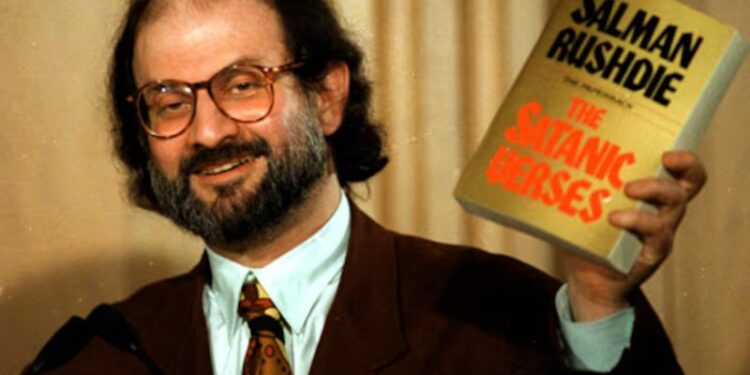In February 1989, a seismic event in literary history occurred when Iran’s Ayatollah Khomeini issued a fatwa calling for the death of author Salman Rushdie over his novel “The Satanic Verses.” This religious edict, which included a $3 million bounty, forced Rushdie into hiding for nearly a decade and sparked a global debate about freedom of expression, religious sensitivities, and the role of literature in society.
“The Satanic Verses,” published in 1988, drew fierce criticism from some Muslims who considered its portrayal of the Prophet Muhammad blasphemous. The novel, which blends magical realism with historical elements, includes dream sequences featuring a character inspired by Muhammad. While Rushdie maintained that the work was fiction and not intended to be disrespectful, the controversy rapidly escalated into an international crisis.
The impact of the fatwa was immediate and far-reaching. Rushdie, a British-Indian writer who had already achieved acclaim for works like “Midnight’s Children,” was placed under round-the-clock police protection by the British government. He moved frequently between safe houses, living under the pseudonym Joseph Anton – a name he would later use as the title of his memoir about this period. Several translators and publishers associated with the book were attacked, with some suffering serious injuries and his Japanese translator, Hitoshi Igarashi, being killed.
The crisis created diplomatic tensions between Iran and Western nations, particularly the United Kingdom, which temporarily severed diplomatic relations with Iran. The affair also highlighted the complex challenges of balancing religious sensitivities with artistic freedom in an increasingly interconnected world. Many writers, intellectuals, and human rights organizations rallied to Rushdie’s defence, viewing the fatwa as an attack on fundamental principles of free expression.
Although Iran’s government distanced itself from the fatwa in 1998, allowing Rushdie to gradually resume a more public life, the threat never fully dissipated. This became tragically clear in August 2022 when Rushdie was brutally attacked during a literary event in New York, suffering serious injuries including the loss of sight in one eye.
Throughout this ordeal, Rushdie has remained an outspoken advocate for free speech and continued to write prolifically. His experience has become a powerful symbol of both the perils and importance of artistic freedom. The fatwa affair remains a watershed moment that continues to influence discussions about religious tolerance, freedom of expression, and the role of literature in challenging cultural and religious boundaries.
newshub




Recent Comments